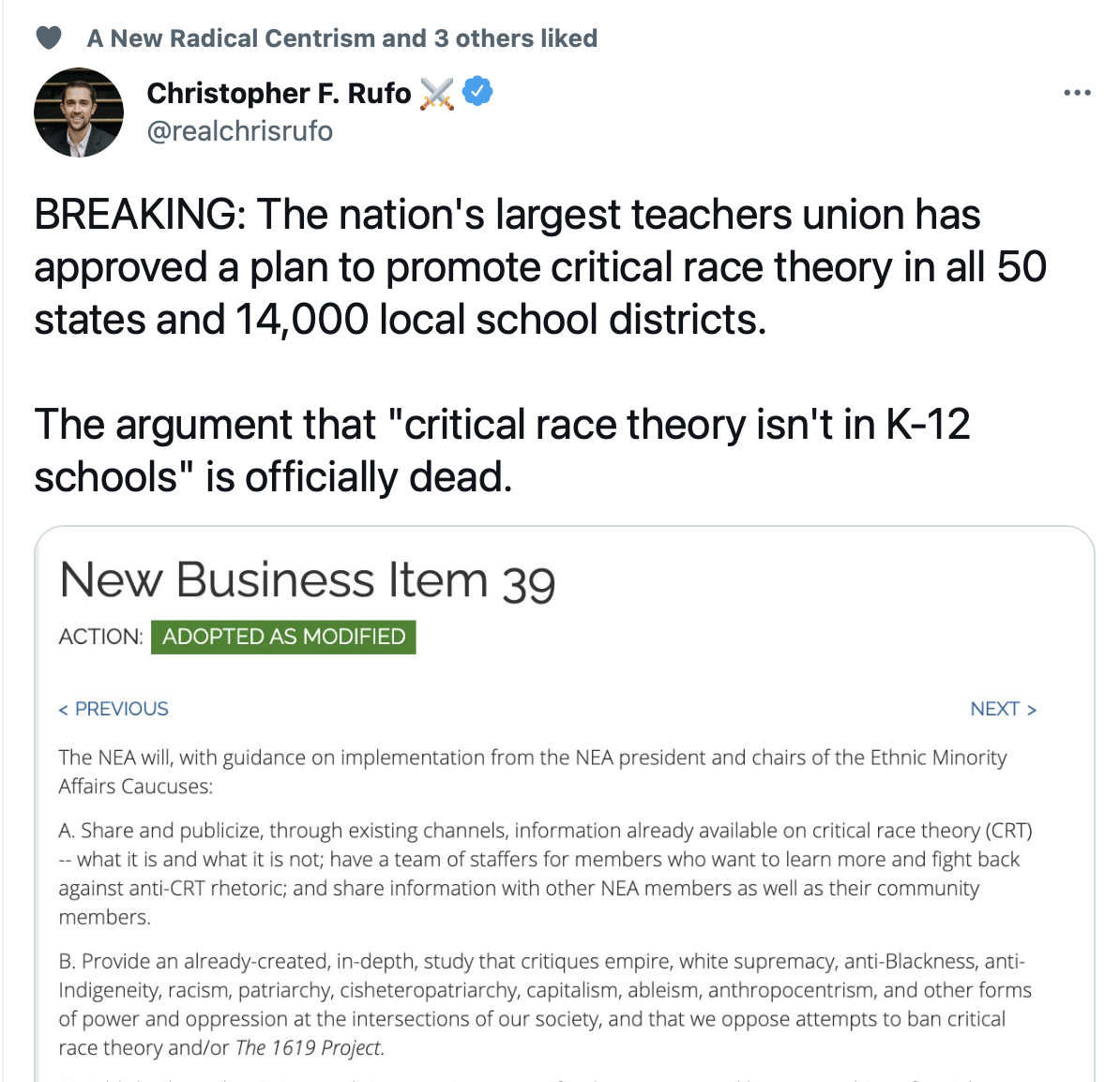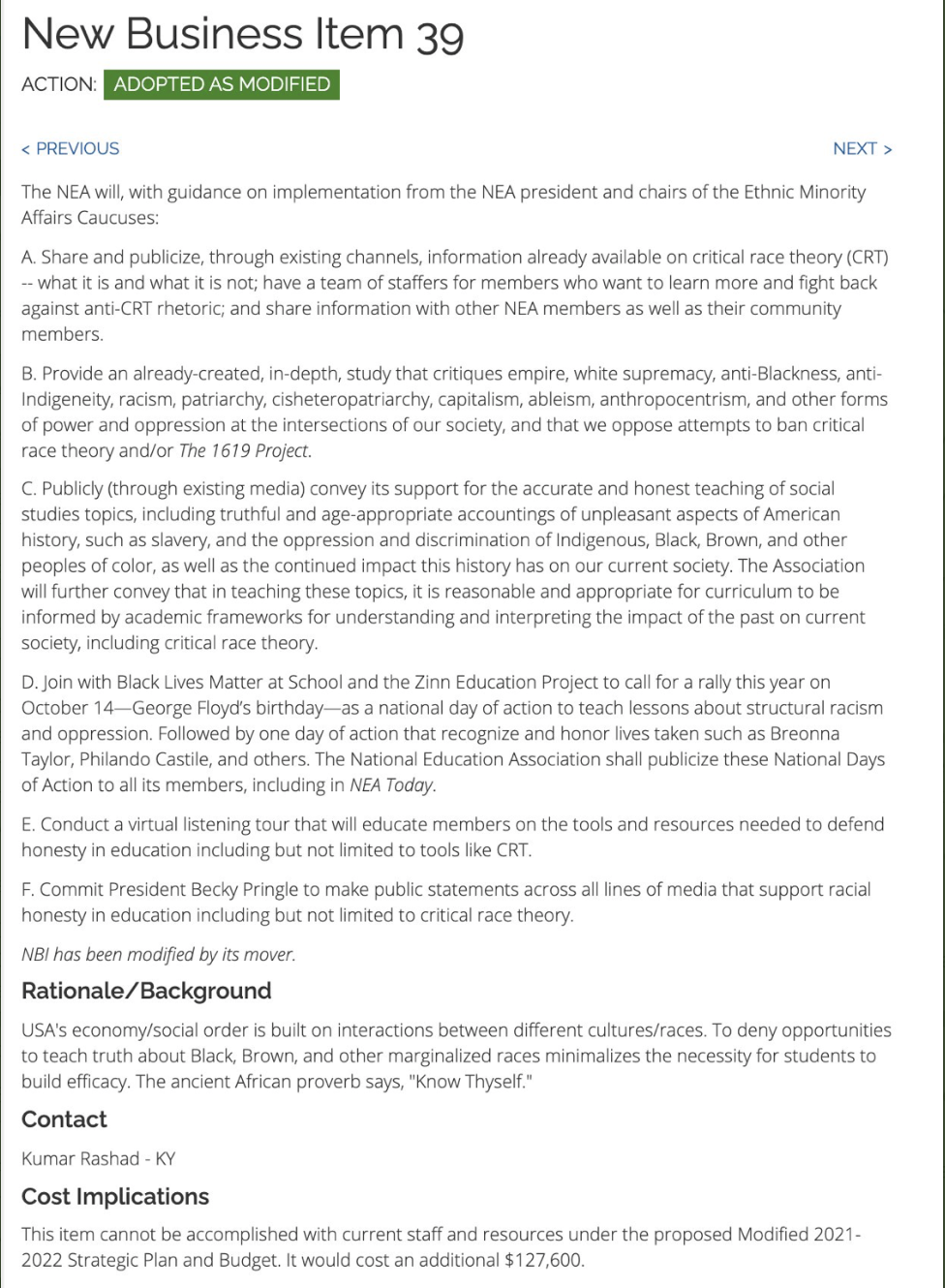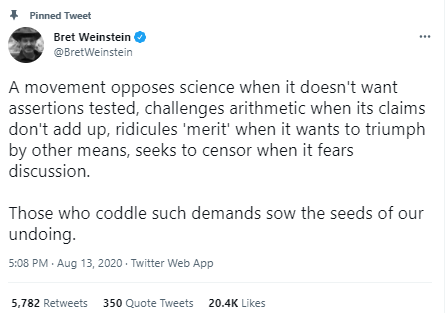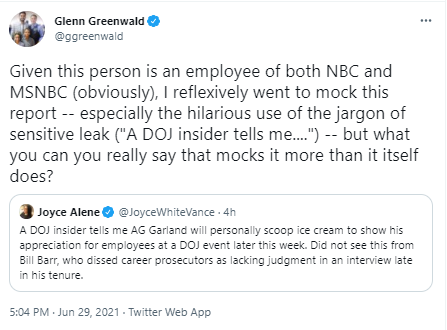A Question for Those Who Claim that America’s Schools are Properly Teaching Students About Racism
We're repeatedly hearing that Critical Race Theory (or whatever you want to call this, which is being taught in all these places) merely means teaching America's racial history in classrooms (as though this sad and deplorable American history is not being taught in most schools). Here is a summary of what is happening:
Increasingly, American institutions — colleges and universities, businesses, government, the media and even our children’s schools — are enforcing a cynical and intolerant orthodoxy. This orthodoxy requires us to identify ourselves and each other based on immutable characteristics like skin color, gender and sexual orientation. It pits us against one another, and diminishes what it means to be human.
I would ask a question to those who advocate for CRT: Do you agree with the following basic principles that have been articulated by Foundation Against Racism and Intolerance (FAIR):
What We Stand For
We defend civil liberties and rights guaranteed to each individual, including freedom of speech and expression, equal protection under the law, and the right to personal privacy.We advocate for individuals who are threatened or persecuted for speech, or who are held to a different set of rules for language or conduct based on their skin color, ancestry, or other immutable characteristics.
We support respectful disagreement. We believe bad ideas are best confronted with good ideas – and never with dehumanization, deplatforming or blacklisting.
We believe that objective truth exists, that it is discoverable, and that scientific research must be untainted by any political agenda.
We are pro-human, and promote compassionate anti-racism rooted in dignity and our common humanity.
The FAIR Pledge
Fairness. “I seek to treat everyone equally without regard to skin color or other immutable characteristics. I believe in applying the same rules to everyone, and reject disparagement of individuals based on the circumstances of their birth.”Understanding. “I am open-minded. I seek to understand opinions or behavior that I do not necessarily agree with. I am tolerant and consider points of view that are in conflict with my prior convictions.”
Humanity. “I recognize that every person has a unique identity, that our shared humanity is precious, and that it is up to all of us to defend and protect the civic culture that unites us.”
FAIR Principles of Peaceful Change, Based on Dr. Martin Luther King Jr.'s Principles of Nonviolence
Exercise Moral Courage. Telling the truth is a way of life for courageous people. Peaceful change cannot happen without a commitment to the truth.
Build Bridges. We seek to win friendship and gain understanding. The result of our movement is redemption and reconciliation.
Defeat Injustice, Not People. We recognize that those who are intolerant and seek to oppress others are also human, and are not evil people. We seek to defeat evil, not people.
Don’t Take the Bait. Suffering can educate and transform. We will not retaliate when attacked, physically or otherwise. We will meet hate and anger with compassion and kindness.
Choose Love, Not Hate. We seek to resist violence of the spirit as well as the body. We believe in the power of love.
Trust in Justice. We trust that the universe is on the side of justice. The nonviolent resister has deep faith that justice will eventually win.
It is my strong suspicion that tens of thousands of teachers in thousands of school districts no longer agree with the above principles. I am seeing increasing amounts of evidence for this every day.
I proudly stand behind the above principles set forth by FAIR. I am honored to stand for the above principles along with FAIR's Distinguished Board of Advisors.




